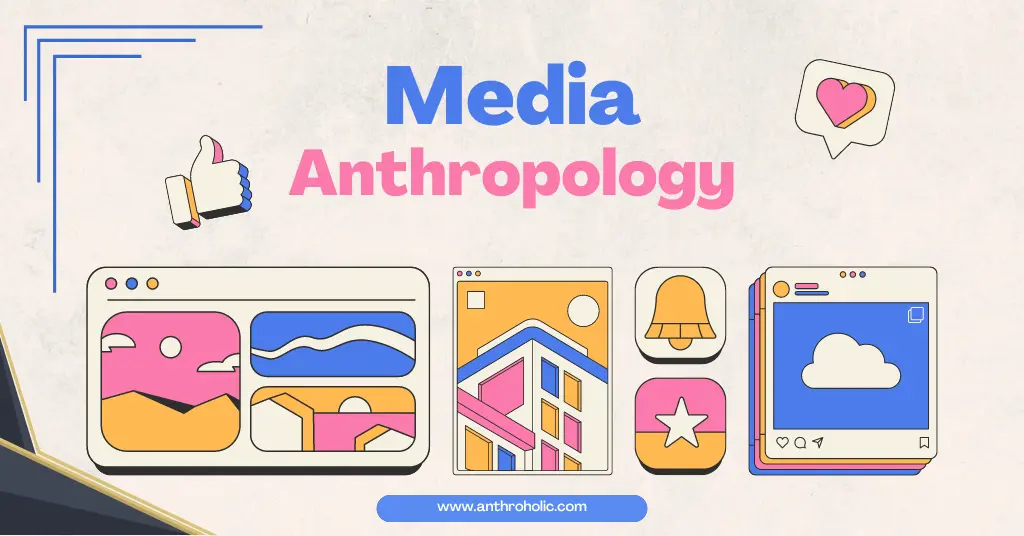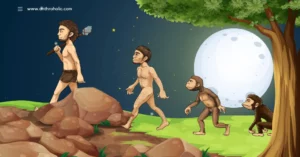AI Answer Evaluation Platform Live Now. Try Free Answer Evaluation Now
Media Anthropology
Media anthropology is a growing field that investigates the complex relationship between media, culture, and society. With the rapid evolution of communication technologies and the increasing significance of media in our daily lives, understanding the impact of media on cultural identities and social change is essential.

What is Media Anthropology?
Media anthropology is the study of the production, circulation, and consumption of media within cultural and social contexts [1]. This interdisciplinary field combines anthropological theories and methods with media studies, focusing on understanding how people engage with and create meaning from media forms such as television, radio, newspapers, and digital platforms.
The development of media anthropology can be traced back to the early 20th century when anthropologists began studying the impact of media on non-Western societies [2]. Key concepts in media anthropology include mediatization, the process by which society becomes increasingly shaped by media; and mediation, the ways in which media artifacts intervene in social interactions and cultural processes [3].
Methods and Approaches in Media Anthropology
Media anthropologists employ a range of research methods, including participant observation, interviews, content analysis, and visual ethnography [4]. These approaches help researchers understand how people use media in their everyday lives, and how media practices are influenced by cultural norms, values, and power relations.
Different theoretical frameworks have been applied in media anthropology, such as political economy, cultural studies, and semiotics. Each approach has its strengths and limitations; for example, political economy focuses on the economic and political aspects of media production and distribution, while cultural studies emphasize the role of media in constructing and contesting cultural identities [5].
The Role of Media in Cultural Identity and Social Change
Media plays a crucial role in shaping cultural identities and fostering social change. For instance, Mankekar’s (1999) [6] study of television in India demonstrated how the medium has reshaped gender roles and family dynamics. Similarly, the rise of digital media has led to new forms of activism, as seen in the Arab Spring, where social media platforms were used to mobilize protests and challenge political regimes [7].
Ethical Considerations in Media Anthropology
Media anthropologists must navigate ethical concerns related to representation, privacy, and cultural appropriation. Reflexivity, or the researcher’s awareness of their own biases and positionality, is crucial in addressing these challenges [8]. For example, Abu-Lughod (1991) [9] called for anthropologists to “write against culture” by critically examining their assumptions and avoiding the exoticization of their subjects.
The Future of Media Anthropology
Emerging trends and technologies, such as artificial intelligence and virtual reality, have the potential to reshape media anthropology. Additionally, interdisciplinary collaboration with fields like sociology, psychology, and communication studies can further enrich our understanding of the interplay between media and culture [10].
Conclusion
In today’s rapidly changing world, understanding the relationship between media and culture is more important than ever. Media anthropology offers valuable insights into how media shapes cultural identities, drives social change, and impacts our daily lives. By employing a range of methods and theoretical approaches, media anthropologists can explore the complexities of this relationship and address the ethical challenges that come with studying media in diverse cultural contexts.As communication technologies continue to evolve and intersect with other fields, the future of media anthropology promises to be an exciting and dynamic area of study. We encourage readers to delve deeper into this fascinating discipline and consider its implications for understanding the world around us.
See Also
References
[1] Peterson, M.A. (2003). Anthropology and mass communication. Berghahn Books.
[2] Rothenbuhler, E.W., & Coman, M. (2005). Media anthropology. SAGE Publications.
[3] Couldry, N. (2004). Media rituals: A critical approach. Routledge.
[4] Pink, S. (2006). Visual ethnography. SAGE Publications.
[5] Ginsburg, F., Abu-Lughod, L., & Larkin, B. (2002). Media worlds: Anthropology on new terrain. University of California Press.
[6] Mankekar, P. (1999). Screening culture, viewing politics: An ethnography of television, womanhood, and nation in postcolonial India. Duke University Press.
[7] Howard, P.N., & Hussain, M.M. (2013). Democracy’s fourth wave? Digital media and the Arab Spring. Oxford University Press.
[8] Gubrium, J.F., & Holstein, J.A. (2003). Postmodern interviewing. SAGE Publications.
[9] Abu-Lughod, L. (1991). Writing against culture. In R.G. Fox (Ed.), Recapturing anthropology: Working in the present (pp. 137-162). School of American Research Press.
[10] Postill, J. (2010). Introduction: Theorising media and practice. In B. Bräuchler & J. Postill (Eds.), Theorising media and practice (pp. 1-34). Berghahn Books.



